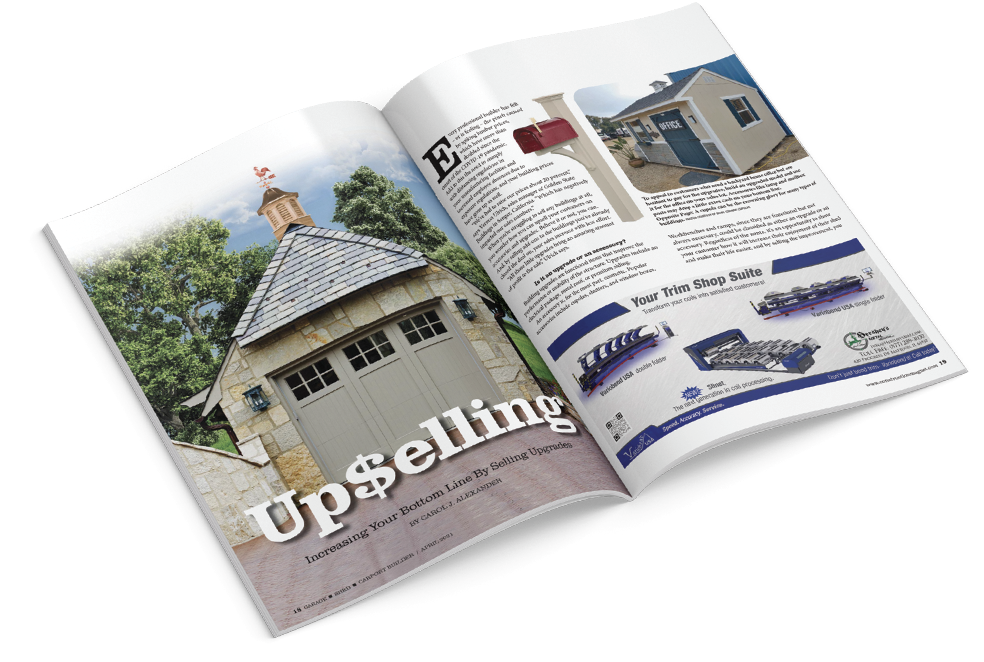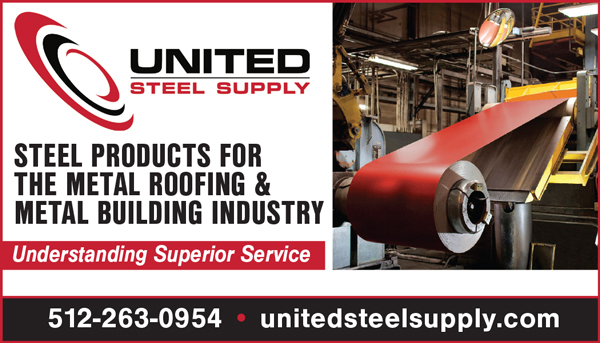Navigating Through a Supplier’s or Customer’s Business Woes
by Gary Reichert, Publisher
The year 2020 was an interesting year. Even if everything goes smoothly for the next few months and the world transitions back to “normal,” there will be long-term changes to the business climate and society in general. Anyone who has ever spoken to me knows I am not bright enough to predict what those changes will be, but smarter people have predicted a future that makes sense.
According to the Wall Street Journal, companies borrowed heavily to survive the stress from COVID-19 and will start to feel the pressure of the increased debt load in mid-2021.
A lot can happen between now and six months from now, but experts are predicting an increase of up to 25% in Chapter 11 filings. Having witnessed two such filings recently, both on opposite sides of the filing, there is some real-world insight I would like to share.
Obligatory disclaimer: I am not and never wanted to be a lawyer. The following are reflections from my recent personal experiences — nothing more. This does not constitute legal advice. All situations are unique, and my experiences may or may not apply to your situation. Any decisions you make are yours, and you assume all the risks and benefits associated with them. (Maybe I should have been a lawyer…)
Bankruptcy: One Size Does Not Fit All
Before discussing my personal experiences, we should explain the differences in types of filings commonly referred to as “Bankruptcy.”
Chapter 7 is a liquidation of assets by the court. This most often applies to individuals, but can be applied to businesses when the business has no future prospects or chances of viability.
Chapter 11 is a reorganization. Reorganization can take many different forms. Debt facilities may be renegotiated, nonperforming divisions or assets may be disposed of, or sometimes divisions are pieced out and sold at auction.
The Small Business Reorganization Act relaxed standards for Chapter 11 so that small businesses would be better able to maintain their equity and some operational control of their business. The Subchapter V of Chapter 11 originally only applied to businesses with under $2,725,625 in debt. The Cares Act temporarily expanded that to $7,500,000 to help deal with COVID-19 stress. The Cares Act provision is currently set to expire on March 27, 2021, so some larger companies may find Chapter 11 more attractive. If you are dealing with a business bankruptcy, the majority of cases will be Chapter 11.
Variables to Consider
The outlook and circumstances of a business associate’s bankruptcy are vastly different based on your relationship with the company. If you buy products or services from the company, there is an excellent possibility you won’t notice any changes in operation. If you sell product to the company and they pay you, the differences can be striking.
In many instances of Chapter 11, the end result is the acquisition of the company or part of the company by new owners. That is what happened when Shield Wall Media acquired the Construction Division from F+W Media.
When the change in ownership occurs, one of the documents that must be approved by the court is the Assignment and Assumption Agreement. This agreement details everything that will be transferred (or not transferred) to the new owners.
The Assignment and Assumption Agreement will have schedules including physical assets, inventory, real estate, and intellectual property. It also includes the agreements the old company had in place with existing vendors and customers. Typically, the new owners will keep the agreements that generate revenue, leave, or attempt to renegotiate the debt obligations.
If you sell products or services to the company, there are two basic considerations: recouping what you are owed from the old company, and maintaining the relationship with the new company.
Being owed money you cannot collect can be emotional. There are feelings of being cheated and it is not fair for someone to not honor their obligations. If the business going through Chapter 11 owes you money, watch the court filings closely. It is critical that you comply with the dates provided by the court. Typically, the company will continue operations during the Chapter 11 process. Ceasing operations decreases the cash flow and value of the company, which benefits no one.
If you know the filing dates are coming, you may want to evaluate the orders the company is placing with you. Once the filing takes effect, the court will often allow the business to pay for goods and services for ongoing operations. If an invoice arrives before the date, it will be included in the settlement and payment will probably be delayed until the filing is resolved. If the invoice goes in after the filing date and is considered necessary for continuing operation, it should be paid promptly, as payment is overseen by the court. Monitoring invoice dates may be the difference between getting paid promptly and not getting paid at all.
When deciding if you will maintain a relationship with the new owners, the first decision is based on whether you believe the business will be viable in the future. If any operational challenges are fixed with the new ownership, it may be worthwhile to continue. Remember, you both have the option to renegotiate pricing and payment terms for the ongoing relationship. As a vendor, this is a great opportunity to develop that relationship. A business has many moving parts. All of the vendors need to be confirmed or replaced.
Staff, resources, and real estate all need to be evaluated in a Chapter 11. This often has a timeline of 30 to 60 days. Those tasks are in addition to maintaining operations and working through the legal maze surrounding Chapter 11 and buying a business. If it is a small company, they will want—or need— to maintain many of the existing relationships for expediency. If you want to keep their business, the best thing you can do is make the transition simple. The new owners will probably be grateful to check items off of their lengthy to-do list.
If you buy from the company negotiating Chapter 11, you can mostly disregard the court notices. The dates and updates are mostly insignificant. One item to consider is: Everyone doing business with the company filing Chapter 11 receives the court notices. They are also a matter of public record, so the company’s competitors receive them as well. Often, competitors will call and try to put their own spin on the process. One of Shield Wall Media’s largest and most critical vendors just went through a Chapter 11 process. I received calls from more competitors than I knew existed. I filed them away in case I need them in the future, but otherwise gave them little time and attention.
One reason the competitors were dismissed was the company working through Chapter 11 helped us negotiate the tasks required when we bought the Construction Division that became Shield Wall Media. They took that opportunity to be a resource, and it benefitted them in the future.
Negotiating Terms and Commitments
If you buy from the company, one area of legitimate concern is their ability to meet their commitments. There are two primary aspects to this risk: their ability to deliver in a timely manner, and your payments for products or services.
If you have net 30 or other payment terms, the money is a non-issue. Since payment isn’t due until after delivery, if they do not deliver, you do not pay. There is no downside risk to you based on non-performance. I dealt with this on a daily basis with advertisers asking what would happen if we went out of business. The answer was simple: Advertising is not considered as revenue until the issue prints and mails. If the issue you advertised in never mailed, there is nothing earned and nothing owed. It would be the same with products. If it’s never delivered, you would never owe anything.
I would be extremely hesitant to prepay or put a deposit on an order from a company going through Chapter 11. Operation is overseen by the courts, yet even in the best-case scenarios, if they cannot deliver product, your money is tied up for a while. You will probably get your deposit back someday, but personally, I would not take the chance.
Timing is a different consideration, and requires some research. The ability to pay bills can affect any company’s relationship with their vendors and suppliers. Suppliers will often change terms for customers who pay slowly or present collection challenges. If a company cannot get raw materials, it obviously will disrupt their supply chain and create delays. A delay in their production becomes a delay in your production.
Usually that is not the case, and that is one of the reasons the court allows and oversees payments of invoices after the filing. In my personal experiences, this has not been a concern. But for critical components, I would have a backup waiting.
The one thing to remember is Chapter 11 does not mean the company is being liquidated and going away. The end result could be something that the outside world would never notice, or it can end in a complete change of management or ownership. The new owners could decide to liquidate, or they could grow like we have at Shield Wall Media. When we went through the acquisition of a company from Chapter 11, we did not miss a single issue. We came out of the process launching a new show and new magazines.
In any result, caution is appropriate and redundancy is good, but a critical partner going through Chapter 11 is not a reason to panic. GSCB





















